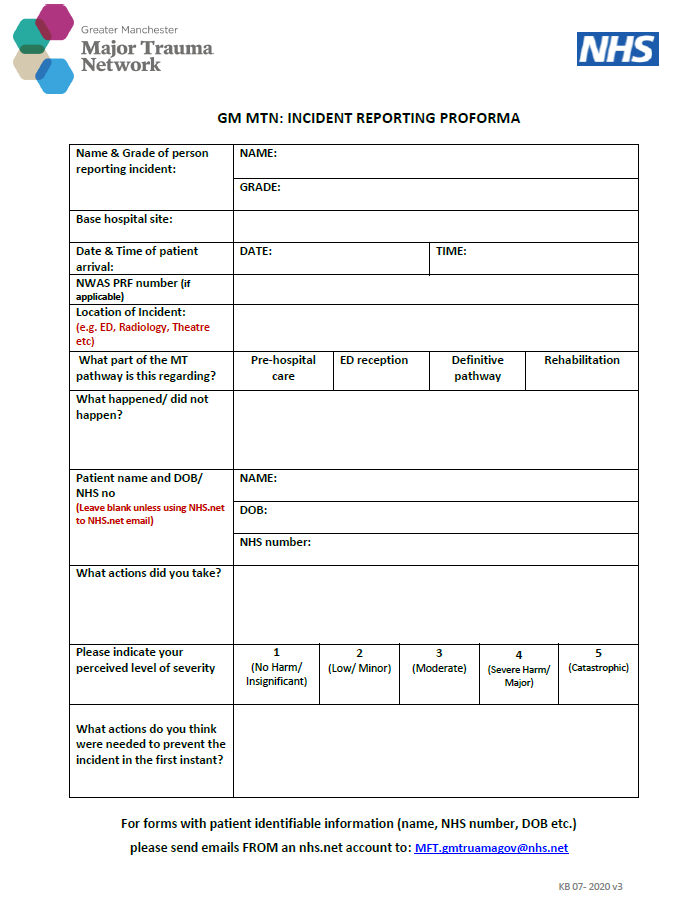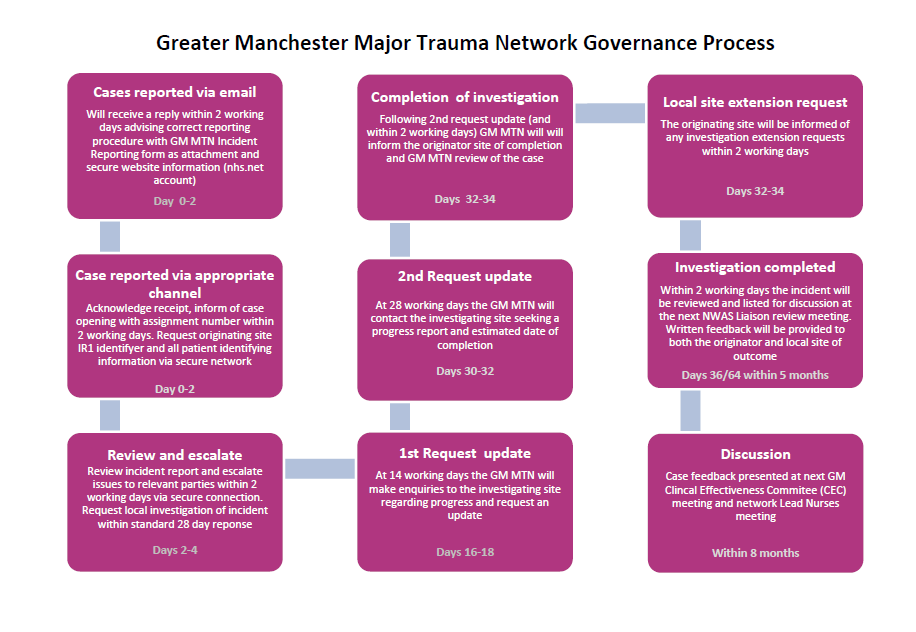Reporting adverse incidents is an important part of how we learn at the Network. It contributes to our work plans, improvement projects and new pathways. We used the feedback to inform our clinical teams and improve care delivery and provide positive feedback to individuals when we can.
The Network have produced a document that assists in reporting incidents, please see link below.
The form requests patient identifiable data therefore please ensure that you submit the form from an nhs.net account to our dedicated governance account – MFT.gmtraumagov@nhs.net
If your site doesn’t have an nhs.net account you can request a copy of the form and complete this omitting patient identifiable data. You can then contact us by phone/MS Teams call to provide these details.
Every hospital site has been issued with a copy of the form however you can also download the form by clicking on the link below
What does the process involve?
Sites submit the Incident Reporting form to the nhs.net address above. The form is then acknowledged via email, a case number assigned and the necessary requests for further information are sent out by the Network team. Once the information is collated the incident is discussed at the bi-monthly governance meeting.
Who attends the meeting?
The meeting is attended by the Network management team, representatives from the North West Ambulance Service (NWAS), the Trauma Leads from the Major Trauma Centre Collaborative (MTCC) and consultant representation from Trauma Units and Local Emergency Hospitals.
We have an open door policy for clinical staff in GM to these meetings and welcome any clinical representatives from sites. If you would like to attend a network governance meeting please contact jay.harrison@mft.nhs.uk for details
What happens at the meetings?
Pre-hospital, ED reception, definitive care and rehabilitation phases of care are all discussed. Timelines of events, statements and accounts are examined and shared with the group and if further information is required to conclude then an action planner is formulated.
If an incident can be concluded, the network governance lead will contact the incident submitter to feed back the process and discussion findings. If the incident guides the network towards updates/changes in practice then this will be discussed at the Clinical Effectiveness Committee meeting and potential new work streams discussed. Wherever possible ‘lessons learned’ are shared as appropriate.

